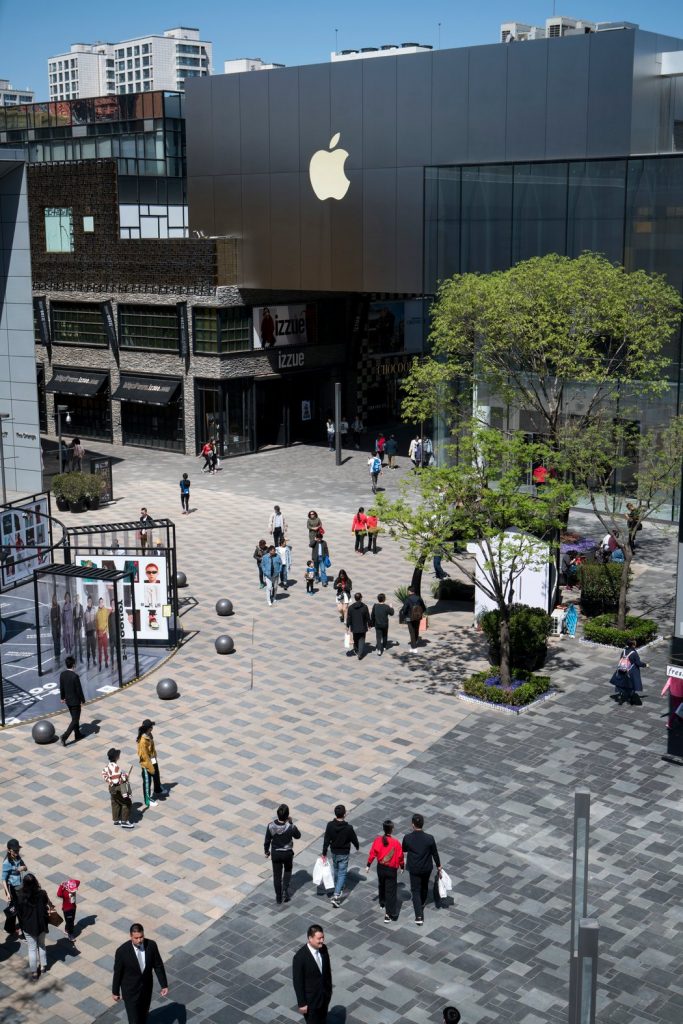In a Trade War, China Might Boycott U.S. Goods. That Could Backfire.
TAICANG, China — If China calls for a boycott of American goods, Chinese workers like David Xu could be in trouble.
Mr. Xu is one of thousands of residents of this port town who cash paychecks from American companies. He works as a technician at a Procter & Gamble manufacturing and distribution center here, one of the company’s biggest in China. Across town, Nike has opened a huge distribution center, its largest in Asia.
In all, more than 40 other American companies have set up shop here, making chemicals, lighters and a broad range of other products for a Chinese market eager for American goods.
“There is no deep hatred for American companies,” said Mr. Xu, who has worked for Procter & Gamble for 13 years. “The impact of this trade conflict shouldn’t be big. After all, American companies bring so many conveniences to the lives of Chinese people.”
Advertisement
Continue reading the main story
Some Chinese state media outlets have hinted darkly that Beijing could weaponize its hundreds of millions of shoppers should Washington go through with its recent tariff threats and start an all-out trade war. On Weibo, China’s version of Twitter, there are sporadic calls to boycott Apple’s iPhones. Beijing has done it before, ably punishing Japanese, South Korean and Philippine products and companies over political disputes.
Continue reading the main story
A Boycott America plan could be much tougher to pull off.
While competition from Chinese-made smartphones is rising, iPhones remain popular. Shopping mall developers, eager for the extra cachet, clamor for Starbucks to open stores. Nike dominates the sportswear market in China. Chevrolet is one of the country’s most popular brands.
And notably, many of those products are made by Chinese workers. Factories in China assemble iPhones, stitch up Nike apparel and footwear and make Chevrolets and Fords. It isn’t clear how many jobs this creates, but the American Chamber of Commerce in China said that more than one-third of its 800-plus member companies have more than 1,000 employees in the country.
“China needs the U.S., the U.S. needs China,” said Max Baucus, a former United States ambassador to China. “We are joined at the hip economically.”
The United States has also supplied much of the investment underpinning China’s economic growth. Between 1990 and 2017, America pumped more than $250 billion into China, according to a report by the Rhodium Group and the National Committee on United States-China Relations.
“The U.S. multinationals have been playing a very critical part of China’s development story, providing investment, technology, brands,” said Erlend Ek, trade research manager of China Policy, a Beijing-based advisory firm. “They have a very good relationship with each other.”
There’s another reason that Beijing may be reluctant to try a boycott: American multinationals are aiding the Chinese government in some key projects. IBM and Walmart, for example, are collaborating with the e-commerce company JD.com and Tsinghua University to improve food safety in China, a priority for Beijing.
That isn’t to say that the idea is off the table.
The Global Times, a nationalist tabloid controlled by the People’s Daily, the Communist Party’s official newspaper, warned that a “people’s war” could be waged against the United States. On Chinese social media, the phrase “China is not scared!” has become a popular hashtag, the People’s Daily illustrating it with an image of Chinese and American boxing gloves.
Advertisement
Continue reading the main story
“The patriotism and collectivism of the Chinese people will likely play a role,” the newspaper said in an editorial last month. “And the slogans to boycott American cars and other big commodities may ring through the Chinese internet and get a response.”
Continue reading the main storyRead the Original Article






























